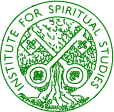
|
|
Lectio Divina |
Seminar delivered by Dom Michael King, OSB on July 15, 2003Listen carefully, my child, to my instructions, and attend to them with the ear of your heart. This is advice from one who loves you; welcome it and faithfully put it into practice... It is not for nothing that St Benedict begins his Holy Rule with the word "LISTEN" and then goes on to say that we ought to listen "with the ear of the heart". For the monk, lectio has always been comprised principally and before all else of Holy Scripture. Perhaps that is why the word "lectio" has taken on the qualification of being "divina", that is, "sacred", "divine". Lectio is being attentive to the word of God and one can truly say that the final goal of lectio is to put us into a state of prayer. St Benedict notes this connection well in the Holy Rule when he unites by juxtaposition these two instruments of good works: To listen willingly to holy reading, and to apply oneself frequently to prayer. (Rule of Benedict Chapter 64) The source of life for all Christians is the Word of God and it is sown in us by lectio divina. It is the task of monastic life, indeed of Christian life, to bear the Word of God and bring its fruition to full maturity. Perhaps we might ponder, as we approach the great festival of Our Lord's birth and the mystery of the Incarnation, the way in which the Word of God can be born again in and through us. To open the Bible, to listen and receive what it says, is made up of daily, and more than daily encounter. The Bible is a text, and more. Because it is human, it demands all the laws of linguistics and literature for its correct interpretation. At the same time, it is the vehicle of a Word which comes from much further away than its authors. Like all language, that of the Bible contains something more than itself. the other thing is God, who reveals and gives Himself. Each time I open the scriptures while opening my heart and my understanding, God speaks to me at that same moment, and he asks me to cleave to his Word in faith. The whole mystery of "lectio" in our life is as if we lend our heart to that efficacious Liturgy of the Word which God Himself celebrates and which takes place at one and the same time in our heart and within the Bible; there is an interaction between the two. (Andr&eactue; Louf) It is important to situate the Christian life on a foundation of trusting faith. Faith is the basis of all else, and it is this trusting faith which "puts one in the presence of God." (RB Ch 58) St Benedict tells us that we ought always to live in the awareness of the presence of God; and it is within this awareness that we are to do our reading. The faith received at Baptism asks only to expand itself, to strengthen itself; it is a matter of living it. Christ knows me and I known the Lord. But he knows me in his light, while my knowledge is in the obscurity of trusting faith. The Lord knows me and calls me to know Him, and because He knows me He calls me to love Him: starting from my knowledge through faith. When there is fundamental trusting faith at the outset, from that point on a bond of love establishes itself. Then one is primed for dialogue, a dialogue which, on our side, is always a response of love to a call from Love. Now love should always be concretized. We do not love once for all time, and it is a trusting faith which allows us to encounter the Lord in every way. Lectio is one of these privileged ways, and that is why the monk puts himself from the outset in a disposition of listening to that word which the Lord wishes to address to him properly, perhaps today. This may be only one word; yet if this word makes him live, then "lectio" has already borne its fruit. The Word of God can demand something from me today which only yesterday it did not demand, and that is why in order to understand this demand, I must be absolutely and completely open and attentive ... Man is the being who was created as hearer of the Word and who rises to his proper dignity by a response to that Word. He was conceived of as becoming in his inmost depths a partner to a dialogue. (H. U. Von Balthasa, Prayer) It seems good, therefore, to situate lectio in this perspective of a nourishment for one's faith, while at the same time one's faith permits this nourishment to make one grow, to make one live. Let us look at the practical aspects of Lectio. It must be remembered that in Benedict's day, reading almost always meant reading aloud. Hearing as well as seeing the words, opening them and taking them into oneself. "Instruction", says St Bernard, "makes learned men; contact makes wise men." It is this contact with God which is the purpose and end of lectio. How do we do it?
Lectio should lead to a more intimate contact with Christ through His Word, and to the Father through Christ His Son. Lectio is at the service of the unification of the person, both in himself/herself and in God. As the feeling of hunger as the sign of a healthy body, so a lively desire to hear the holy word is the surest mark of a soul's good health.
This site is hosted by St Peter's Eastern Hill,
Melbourne, Australia. |